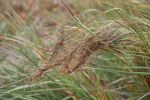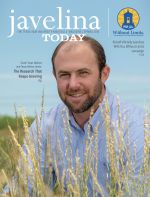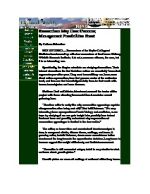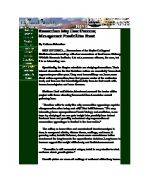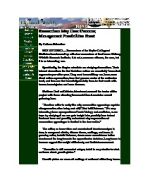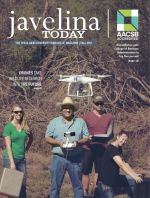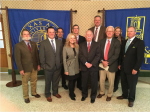
All News
CKWRI researcher, Dr. David Wester, was featured in a radio interview with The Texas Standard on his tanglehead research. To listen to the interview, go to http://www.texasstandard.org/stories/a-native-species-gets-pushy/.
The land of Texas is wide and plentiful, and has a host of different terrains. Through the years, it has proven to be a prime location for farming, ranching, hunting and producing energy. Its sheer size gives the uninformed an impression that its land would always have something to give us, without much back from us in return. Owners and users of Texas land knew better though, as did Texas A&M University-Kingsville’s Caesar Kleberg Wildlife Research Institute (CKWRI)—conservation and restoration are essential.
Click the linke below to view the full article.
SAN ANTONIO — Drones are growing in popularity. While many use these unmanned aerial vehicles for recreation, the growth is really in commercial applications.
SAN ANTONIO — The first phase of a 10-year study investigating the impact of white-tailed deer densities and supplemental feed has yielded results which were presented at the recent Deer Associates meeting here.
The study was conducted by a team of researchers at the Caesar Kleberg Wildlife Research Institute. It addresses the impact of supplemental feed on vegetation health, the nutritional health of the deer, and population dynamics such as impacts on antler size, growth rate and adult and fawn survival.
SAN ANTONIO — Some Southern engineering was used to conduct what is being described as remarkable behavioral research with deer. Specifically, the study addressed whether or not female deer play a role in choosing their mates.
Wildlife researchers, like those at the Caesar Kleberg Wildlife Research Institute (CKWRI) at Texas A&M University-Kingsville, spend countless hours in the field tracking and observing the subjects of their research. That research has taken a giant step into the future with the development of drone usage. An unmanned aircraft system (UAS), or drone, can bring the researcher closer to the subject than ever before.
Click the linke below to view the full article.
Valley Crossing Pipeline, LLC, a wholly owned subsidiary of Enbridge Inc. (NYSE:ENB), and King Ranch, Inc. announced today that they will combine their efforts to make a joint donation of $100,000 to the Caesar Kleberg Wildlife Research Institute (CKWRI). The grant will fund the ongoing development, installation and research of South Texas native seed mixes and the restoration of native monarch butterfly habitat throughout South Texas.
STEPHENVILLE – The statewide search for seeds from native Texas grasses and forbs is expected to expand to East Texas in 2018, according to Texas A&M researchers.
Forrest Smith, the Dan L. Duncan Endowed director of the Texas Native Seeds project for the Caesar Kleberg Wildlife Research Institute at Texas A&M University-Kingsville, said the interest in re-establishment of native grasses and forbs is growing, and research initiatives are expanding.
The Coastal Bend Bays Foundation is a public interest organization dedicated to the conservation of freshwater and coastal natural resources for current and future generations through consensus, facilitation, communication, advocacy, research and education. our membership is comprised of representatives of environmental groups, fishing organizations, port industries, government agencies, university scientists and concerned citizens. This broad-based membership helps the Foundation bring diverse interests together to achieve our community’s environmental and economic objectives.
A large scale research project is taking a closer look at mule deer in the Texas Panhandle. Three Texas universities have teamed up with the Parks and Wildlife Department to determine how agriculture may affect mule deer movements and survival in this region.
Click here to watch the video - courtesy of Texas Parks & Wildlife.
